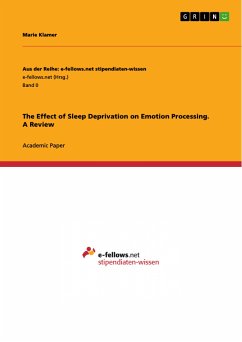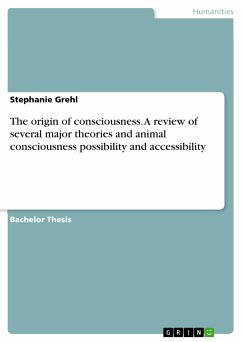Academic Paper from the year 2021 in the subject Psychology - Miscellaneous, grade: 1,0, Stockholm University, language: English, abstract: This literature review explores the effect of sleep deprivation on emotion processing. Relevant behavioral, neurobiological, and neuroimaging studies related to the effects of sleep deprivation on emotional reactivity, emotion discrimination, and empathy are summarized. Given the current global sleep-loss epidemic and the association of sleep and neurological and psychiatric disorders, this topic is highly relevant. Neurochemical correlates are not well understood at this point, but noradrenaline seems to be a key factor. Both neuroimaging and behavioral studies indicate that sleep deprivation amplifies emotional reactivity, visible in heightened sensitivity of the amygdala, insula, and cingulate cortices. Functional connectivity between the amygdala and prefrontal regions is reduced. This loss in connectivity, together with disruptions in brain-body communication, may explain findings that indicate impairments in emotion recognition and emotion discrimination among sleep-deprived individuals. Several studies further indicate that sleep deprivation can impair empathy and interpersonal functioning. There are several inconsistent findings of emotion reactivity, emotion discrimination, and empathy. Possible reasons for that include sample sizes, control variables, and varying operationalizations of sleep deprivation. The field would benefit from studies exploring the effect of chronic sleep deprivation and how individuals differ in their vulnerability.
Dieser Download kann aus rechtlichen Gründen nur mit Rechnungsadresse in A, B, BG, CY, CZ, D, DK, EW, E, FIN, F, GR, HR, H, IRL, I, LT, L, LR, M, NL, PL, P, R, S, SLO, SK ausgeliefert werden.









